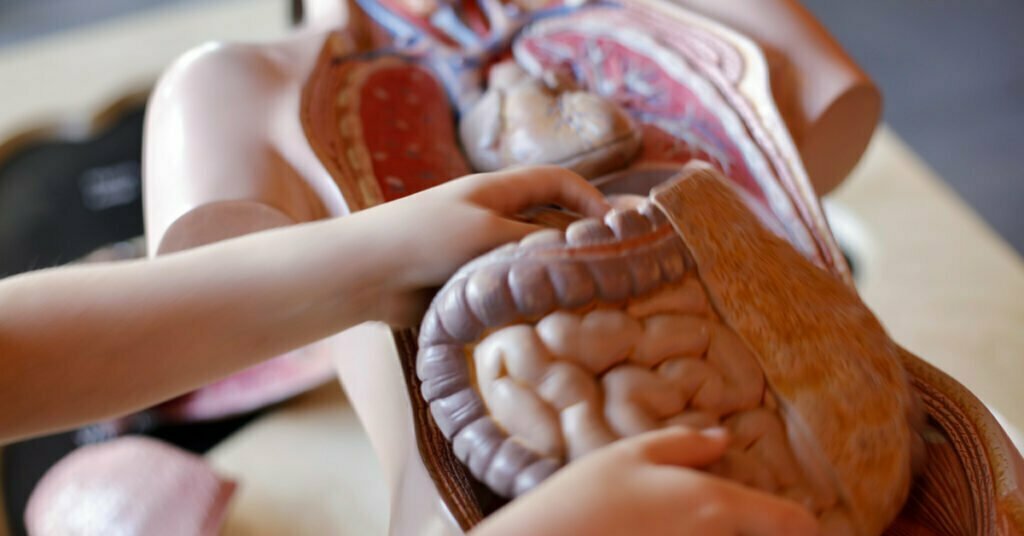We live in this day and age where lifestyle plays an essential role that impacts our overall health. Unfortunately, diseases such as hypertension, diabetes, and obesity continue to rise, despite being preventable with lifestyle adjustments. Do you know what these lifestyle diseases have in common? They’re all related to your gut.
Why do we need to pay attention to our gut health?
A healthy gut indicates that you have a stronger immune system, a better mood, effective digestion, as well as a healthy brain and heart, among other things.
Our guts were once considered our “second brain,”[1] as it helps regulate your body’s metabolism through the release hormones that can communicate effects to your brain. Food intolerance[2] can lead to improper digestion of nutrients. That’s why it’s important to watch out for symptoms of irregular gut activity such as abdominal bloating, diarrhea, constipation, and weight changes. The integrity of your gut not only potentiates gastrointestinal-related disorders but also contributes to developing autoimmune diseases[3], skin allergies[4], endocrine disorders[5], and certain cancers[6].
Here are the six ways to naturally improve your gut health:
1. Eat more gut-healthy foods
Fiber-rich foods increase the intensity and diversity of good bacteria in the gut. In particular, a plant-based diet rich in leafy greens, fruits, and legumes has high levels of fiber, which contributes to lower levels of gut inflammation and weight loss. Make sure to eat slowly as it helps digest food faster. Aside from fruits and vegetables, whole grains are also an excellent source of fiber. Whole grains[7] can promote a feeling of fullness and reduce inflammation and risk factors for heart disease.
Consuming large amounts of processed foods[8], sugars, or artificial sweeteners can cause gut dysbiosis and decrease the good bacteria in your gut. High amounts of refined sugars[9] are also linked to inflammation which can predispose to many diseases and even cancer.
2. Probiotics
Probiotics are live yeast and bacteria proven to be beneficial for your gut. They support a healthy gut microbiome and prevent inflammation and other intestinal problems. Yogurt is a popular choice of probiotic that is consumed by many. But not all patients would benefit from probiotics. So do consult your health care provider before starting probiotics.
3. Stay hydrated
Taking plenty of water benefits the mucosal lining of the intestines and balances good bacteria in the gut. Limit your alcohol intake, as alcohol[10] increases the risk of gastritis or gut irritation. An inflamed gut leads to heartburn, chronic discomfort, ulcers, and bacterial infection.
4. Avoid smoking
Aside from increasing the risk for cancers, smoking can alter intestinal flora by increasing harmful bacteria and decreasing the number of beneficial ones. As a result, they increase the risk of autoimmune disorders as well as inflammatory bowel disorders.
5. Manage your weight
An inconsistent diet where you alternately lose and gain weight can do you more harm than good, and it might show signs of irregular eating habits, which can contribute to an unhealthy gut. This would lead to failure to absorb nutrients, regulate sugar, and store fat. Insulin resistance, which is caused by diabetes, can also cause weight gain because nutrients aren’t absorbed as well.
Exercising regularly contributes to weight loss or weight maintenance. It can even treat obesity. Along with strengthening activities, 150 minutes of moderate intensity exercise each week can do wonders for your gut. Lean individuals are more likely to benefit from exercise’s gut health benefits than those who are overweight or obese.
6. Manage your stress
Chronic stress affects the gut in ways you cannot imagine. Mental stressors have the potential to alter the bacteria in the intestine. People with inflammatory bowel diseases[11] are more likely to experience mental health disorders, so try to relax more, especially when you feel stressed. Have a good laugh, spend time with loved ones, whether friends or family, meditate, and do deep breathing exercises.
How DrKumo can help
Telehealth and remote patient monitoring are becoming more popular as a means of boosting health. Knowing that you are being looked after in the privacy of your own home is reassuring. DrKumo, the leading provider in next-gen remote patient monitoring, provides real-time vital sign monitoring to prevent the advancement of lifestyle-related disorders like hypertension, obesity, and diabetes—diseases that can lead to chronic bowel diseases that can impair your health if not managed properly.
Conclusion
In conclusion, having a healthy gut is associated with improved overall health and immunological function, among other benefits. People can naturally adjust the number of bacteria in their guts and enhance their gut health by making lifestyle and dietary changes. Simple modifications can have a significant impact. Trying different things out will help you determine what works best for you. It is best to talk with your doctor before making any lifestyle changes to tailor the adjustments to your specific health needs.
These healthy gut suggestions have been widely researched and have been shown to be effective. In addition, gut health can be optimized with remote patient monitoring telehealth if the appropriate quantity of care coordination is implemented.
References:
- Ochoa-Repáraz, J., & Kasper, L. (2016). The Second Brain: Is the Gut Microbiota a Link Between Obesity and Central Nervous System Disorders?. Current Obesity Reports, 5(1), 51-64. doi: 10.1007/s13679-016-0191-1
- Caminero, A., Meisel, M., Jabri, B., & Verdu, E. (2018). Mechanisms by which gut microorganisms influence food sensitivities. Nature Reviews Gastroenterology & Hepatology, 16(1), 7-18. doi: 10.1038/s41575-018-0064-z
- Xu, H., Liu, M., Cao, J., Li, X., Fan, D., & Xia, Y. et al. (2019). The Dynamic Interplay between the Gut Microbiota and Autoimmune Diseases. Journal Of Immunology Research, 2019, 1-14. doi: 10.1155/2019/7546047
- Su, Y., Luo, S., Hsu, C., & Kuo, H. (2021). Differences in gut microbiota between allergic rhinitis, atopic dermatitis, and skin urticaria. Medicine, 100(9), e25091. doi: 10.1097/md.0000000000025091
- Cani, P., & Knauf, C. (2016). How gut microbes talk to organs: The role of endocrine and nervous routes. Molecular Metabolism, 5(9), 743-752. doi: 10.1016/j.molmet.2016.05.011
- Hullar, M., Burnett-Hartman, A., & Lampe, J. (2013). Gut Microbes, Diet, and Cancer. Advances In Nutrition And Cancer, 377-399. doi: 10.1007/978-3-642-38007-5_22
- Rose, D. (2014). Impact of whole grains on the gut microbiota: the next frontier for oats?. British Journal Of Nutrition, 112(S2), S44-S49. doi: 10.1017/s0007114514002244
- Miclotte, L., & Van de Wiele, T. (2019). Food processing, gut microbiota and the globesity problem. Critical Reviews In Food Science And Nutrition, 60(11), 1769-1782. doi: 10.1080/10408398.2019.1596878
- Satokari, R. (2020). High Intake of Sugar and the Balance between Pro- and Anti-Inflammatory Gut Bacteria. Nutrients, 12(5), 1348. doi: 10.3390/nu12051348
- Engen, P. A., Green, S. J., Voigt, R. M., Forsyth, C. B., & Keshavarzian, A. (2015). The Gastrointestinal Microbiome: Alcohol Effects on the Composition of Intestinal Microbiota. Alcohol research : current reviews, 37(2), 223–236.
- Inflammatory bowel disease (IBD) – Symptoms and causes. (2022). Retrieved 12 March 2022, from https://www.mayoclinic.org/diseases-conditions/inflammatory-bowel-disease/symptoms-causes/syc-20353315











